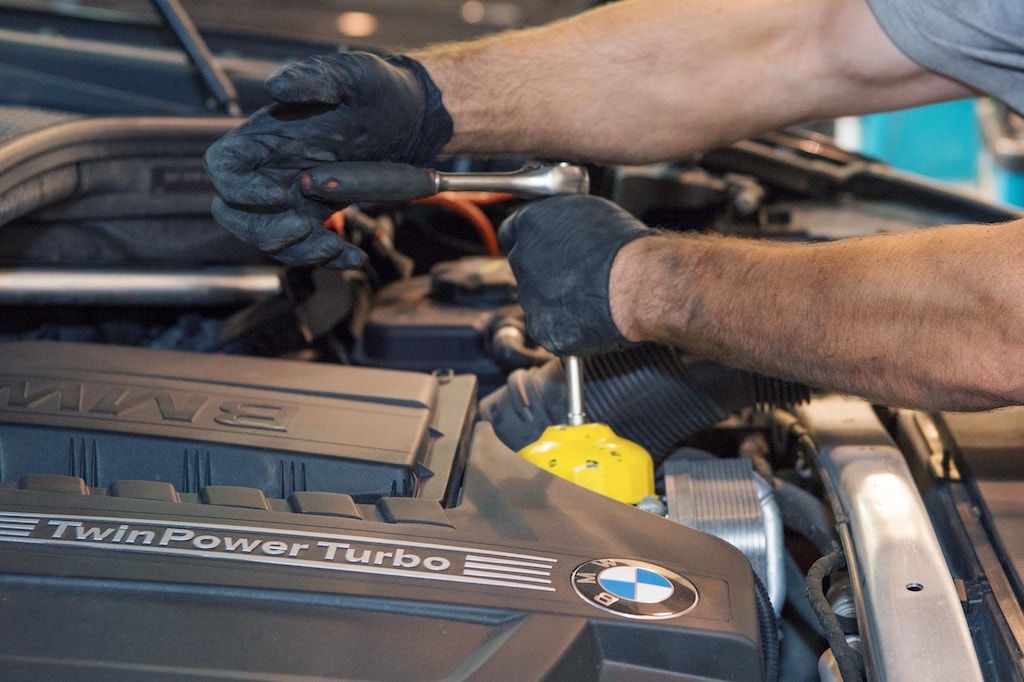The drivetrain in a BMW vehicle is one of its most critical systems, responsible for transferring power from the engine to the wheels. As the heart of the vehicle’s movement, the drivetrain includes several vital components such as the engine, transmission, driveshaft, differential, and axles. Over time, wear and tear can take a toll on these components, and drivetrain repair becomes necessary to maintain the vehicle’s performance and reliability. Regular maintenance and timely repairs are essential to avoid costly damage and ensure that your BMW continues to deliver the driving experience it was designed for.

One of the most common issues BMW owners encounter is transmission problems. The transmission is responsible for converting the engine’s power into a form that can be used to propel the vehicle. BMW’s automatic transmissions are generally known for their precision and smooth shifting, but like any other component, they are not immune to failure. Problems such as erratic shifting, slipping gears, or a complete loss of power can arise from low transmission fluid levels, worn-out seals, or damaged internal components. In some cases, a transmission repair might only require a fluid change or replacing worn seals, while in more severe cases, a complete transmission replacement may be necessary. Regular fluid changes and early attention to warning signs are crucial in preventing expensive transmission failures.
The driveshaft is another essential part of the BMW drivetrain. This component connects the transmission to the differential and transmits the engine’s power to the wheels. Over time, the driveshaft may become worn, leading to vibrations, unusual noises, or trouble with power delivery. If left untreated, a damaged driveshaft can cause further damage to the vehicle’s drivetrain. In some cases, the driveshaft may need to be replaced, and a proper diagnosis by a professional mechanic is key to addressing any issues before they escalate.
The differential in a BMW is responsible for distributing power to the wheels while allowing them to rotate at different speeds, especially when turning. Over time, the gears in the differential can wear out or become damaged. A faulty differential can lead to strange noises, poor handling, or even a complete loss of power to the wheels. Differential problems are often caused by low or old fluid, which can cause friction and damage to the internal components. Regular inspection and fluid changes are vital to keeping the differential in good condition, and in the case of damage, prompt repair or replacement is necessary to avoid more costly repairs down the road.
Axle issues are also common in BMW drivetrains, especially in high-mileage vehicles. Axles transfer the rotational power from the differential to the wheels. When components such as axle bearings, joints, or seals wear out, it can cause vibrations, clicking noises, or even difficulty in driving. If an axle breaks, it can lead to complete vehicle failure, so it is essential to address any symptoms of axle wear as soon as they appear. Repairing or replacing worn-out axles can help maintain the vehicle’s stability and handling.
When dealing with BMW drivetrain repair, it’s bmw drivetrain repair important to rely on a qualified technician who understands the complexities of German-engineered vehicles. DIY repairs or using inexperienced mechanics may lead to further damage and higher repair costs. Regular maintenance, such as fluid checks, inspections, and addressing minor issues early on, can extend the life of your drivetrain and keep your BMW running smoothly for years.
In conclusion, maintaining and repairing the drivetrain of a BMW is crucial to preserving the vehicle’s performance and reliability. Understanding the key components and addressing any signs of wear and tear promptly can prevent costly repairs and ensure your BMW continues to provide the ultimate driving experience. Regular maintenance and professional care are essential to keeping your vehicle in top condition.
